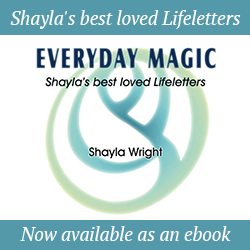
The world is not a courtroom,
there is no judge, no jury, no plaintiff.
This is a caravan,
filled with eccentric beings
telling wondrous stories about God.
~ Saadi ~
About five years ago I worked with a group of people online, exploring ways of being together that would accelerate our healing, evolution and awakening.
We all made a commitment to ourselves and to each other for the duration of the eight weeks we spent together. Our commitment was this: ‘Nobody gets to be wrong’ This commitment was based on a deep recognition that the nature of presence, or awareness, or spirit is unconditional acceptance. It says yes to everything. It’s not standing around saying that anything should be different than it is. So the deepest and truest part of who I am, of who you are, is the same. It allows each person to be exactly as they are. Allows everything to be as it is.
This is not a new understanding or teaching. Most of us have heard it many times over. It’s relatively easy to grasp it on the mind level. I offered a very down to earth practice to our group: What actually happens in your life, in your experience, in your intimate relationships, when nobody gets to be wrong?
‘Nobody gets to be wrong’ works in every direction. It means I don’t get to make you wrong, you don’t get to make me wrong, and we don’t get to make ourselves wrong. We drop our complaints, our resentments, all the ways in which we fall into blaming, as soon as we notice them arising.
It was extraordinary, what unfolded in our group during the time we were together. Some of our deepest conditioning was illuminated. The old and fixed structures in our minds and bodies came clearly into awareness, and a compassion that was uncontrived and deeply natural emerged.
People discovered a deeper capacity to be themselves, to speak with their own voice, to come out of hiding and be totally real. When we know that no-one, including ourselves, is going to make us wrong, a depth of freedom and ease emerges that is quite radical.
But this practice, this exploration, was not easy. We had to go slowly and gently, with deep respect for the power of our belief systems. Why is it so difficult to let go of these judgements? One thing about our most persistent conditions is that they serve a protective function. During those eight weeks we discovered this, again and again. We began to ask each other, when the urge to make someone or something wrong arose, “What are you feeling right now that you are trying to avoid?” Or we would ask ourselves that question when we wanted to point the judging finger, “What am I feeling right now that I feel threatened by?”
Something else we realized during that time together is that the mind believes that letting everyone be as they are is a kind of passivity, a submission to things and situations that are really not okay.
This came up in a training I did recently with a group of people who are starting a community together. “How can I let go of the ‘wrong’ idea?,’ one woman asked me. ‘People do things that are not okay, I can’t say no to those things, I can’t be clear about my boundaries, unless I can be clear about what’s wrong.”
“Is that true?” I asked her. “Let’s say you experience some kind of behaviour that really doesn’t work for you. In order to respond to this situation clearly and decisively, in order to express your real no, do you have to make that person wrong? You don’t have to like it, you don’t have to go along with it, you are totally free to say ‘no’ to it, but why does that make them wrong?”
I left them with that question for a while. After the break, one of the men in the group spoke up. He is the father of a young daughter. “What we are exploring feels so clear when I connect it with how I am with my daughter,” he said.
“She does some things that are really not okay. If I let her do them, she would harm herself or someone else. This is how children are. My job as a parent is to say “No, you can’t do that.”
But it never occurs to me to make her wrong for any of this. I know this instinctively, in my heart–she is not wrong. And making her wrong would not serve anyone; it would not be helpful in any way. So why would it be any different with adults?”
Good question!
The belief in ‘wrong’, that a person can be wrong, permeates our culture. It’s like the idea of original sin. There are hidden dimensions of ourselves filled with shame and guilt, just because we have not been able to question this idea. A whole new world opens up when we are able to step into this inquiry.
What I don’t always see or feel is what happens to me, when I make someone wrong, when I believe that about them. I lose track, right in the middle of that judgement, of what happens to my heart, my whole being. The second I make you wrong, my own freedom to be, just as I am, is shut down.
At one point in his shamanic training, Carlos Castenada was going through a lot of pain and anger about his mother and how she had treated him. He complained a lot about her to his teacher and shaman, Don Juan. After a few days of listening to him, Don Juan sent Carlos on a vision quest into the mountains, where he was chased for days by a jaguar. He barely escaped with his life.
When he managed to make his way back home, he told Don all about his harrowing adventure with the jaguar.
“Were you angry with the jaguar?” asked Don Juan. “Are you bitter and resentful about the way the jaguar treated you?”
Carlos looked at his teacher as if he was crazy. “What kind of question is that?” he asked. “Why would I be angry? I’m very grateful that I survived. That jaguar was just being itself. It wasn’t really personal. That’s just the way a jaguar is. If I had wasted my energy on being angry with that jaguar, I probably would not have survived.”
“Then why is it any different with your mother?” asked Don Juan. “Was she not being exactly who she was? How would it be to respond to the way she was with you in the same way you did with that jaguar? Without making her wrong?”
with love,
Shayla
2 Comments
Join the conversation and post a comment.


Beautiful Shayla. Helped me ease a constriction about a belief I was unaware that I was holding onto. Love you!
Hi Shayla,
I so appreciated your post “Nobody Gets to be Wrong.” Thanks so much!